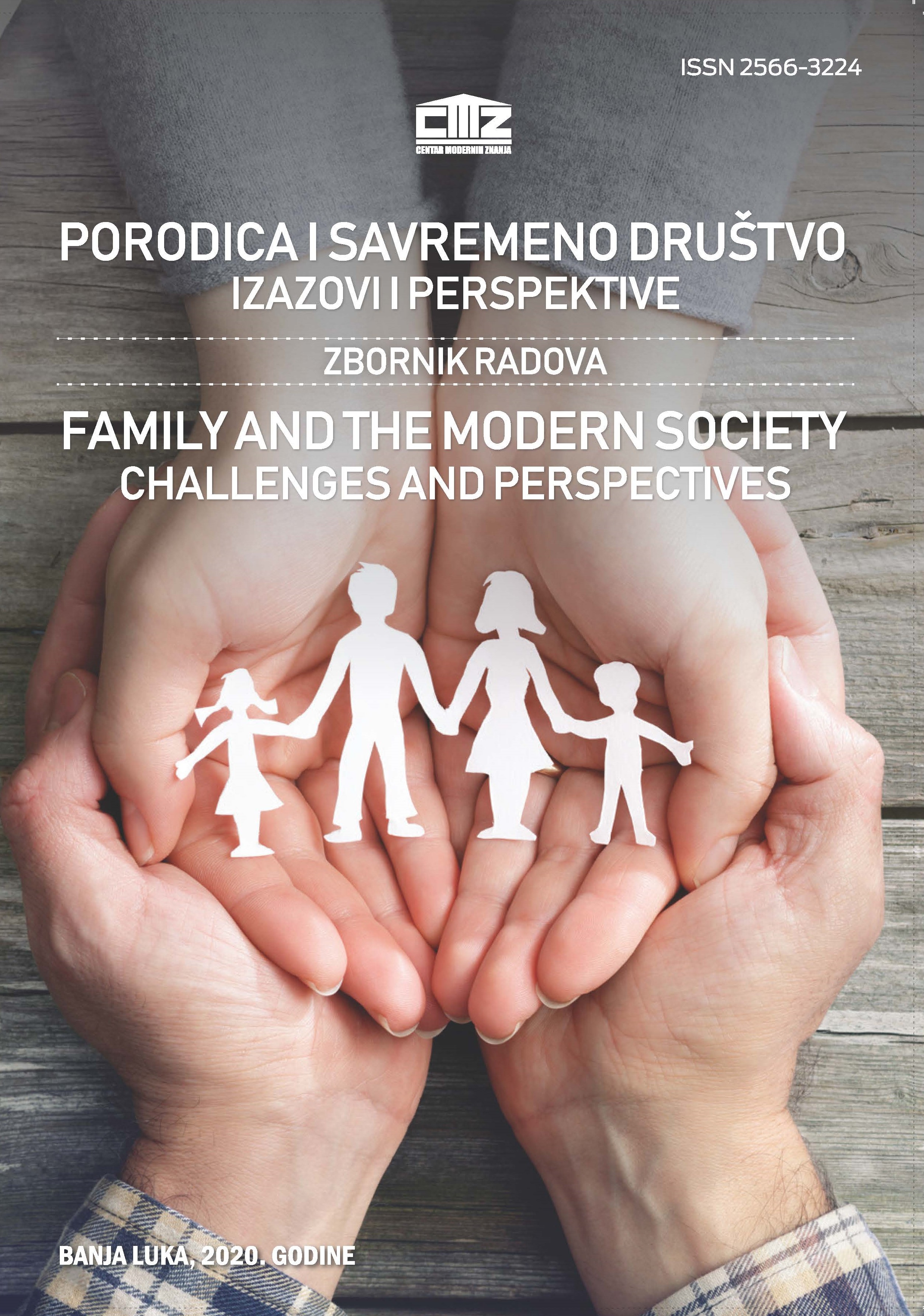PERCEPCIJA STUDENATA O KVALITETI ODNOSA U OBITELJIMA ORIJENTACIJE
STUDENTS' PERCEPTION OF THE QUALITY OF RELATIONSHIPS IN FAMILIES OF ORIENTATION
Author(s): Sandra Bjelan, Lejla KafedžićSubject(s): Sociology, Social differentiation, Family and social welfare, Globalization
Published by: CENTAR MODERNIH ZNANJA
Keywords: family; rejection; perception; acceptance; students;
Summary/Abstract: The family is one of the oldest communities. To date, it has undergone numerous transformations, but it is believed that it will always exist in some form. The modern family is facing a number of changes as a result of globalization and increasingly pronounced liberal aspirations, which bring new values and new ways of understanding interpersonal relationships. In order to respond well to its roles, functions and goals, it is necessary for family to be functional. Research has shown that it is not important for a family to be complete (to live both parents in it) or to be multigenerational in order to be rated as functional. A family that meets the needs of its members is functional. An important aspect of functionality is the quality of the relationship between parents and their children. In this research, attention is focused on the quality of relationships in the families of students of the University of Sarajevo. The aim of the research is to determine students' perception of the quality of relationships in their families taking into account certain sociodemographic characteristics. The quality of the relationship is defined as acceptance and rejection by the parents (mother and father). The research will use the KOBI instrument and a questionnaire on sociodemographic characteristics such as gender, family structure, number of children in the family, education of both parents, working status of both parents and socio-economic status of the family. The assumption is that female students will experience significantly greater acceptance by the mother than male students, while male students experience greater acceptance by fathers. Students living with both parents experience greater acceptance by parents than students living with one parent. Parents who have a higher level of formal education and are employed show a higher degree of acceptance compared to non-employed parents. Students living in families with below-average socio-economic status experience less by parents than those students living in families with average socio-economic status. The results of the research will, among other things, provide recommendations for further research and raising the quality of relationships in the families of student procreation.
Journal: DRUŠTVENE DEVIJACIJE
- Issue Year: V/2020
- Issue No: 5
- Page Range: 131-142
- Page Count: 12
- Language: Bosnian

